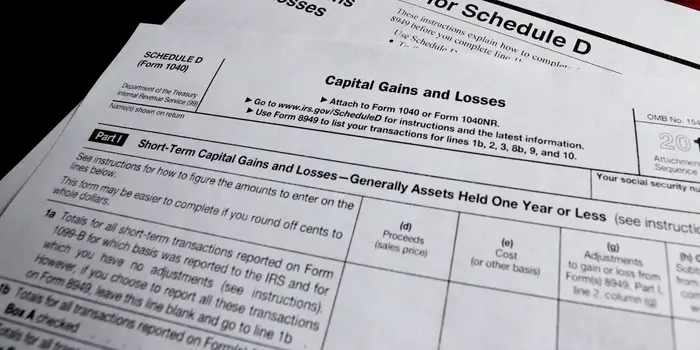Introduction
Virtually anything you own and put money into is considered a capital asset. Examples are a house, personal possessions like furniture, and investment assets like stocks and bonds. An individual's capital gain or loss is calculated as the difference between their adjusted basis in the sold asset and the proceeds from the sale. The basis of an asset is its acquisition price. You will realise a capital gain if the asset's sale price exceeds its adjusted basis. You incur a capital loss if the asset is sold for less than your adjusted basis. Personal use assets (your home, car, etc.) are not deductible in the event of a loss. Here you’ll learn what is the capital gains tax.
Short-Term versus Long-Term Capital Gains Taxes
Short-Term Capital Gain
If you sell an asset after only one year, you will be subject to short-term capital gains taxation rates.
Long-Term Capital Gain
If you have owned an asset for more than a year before selling it, you will be subject to a greater tax rate on your long-term capital rewards when you do sell it. To the extent that you are subject to federal income tax, short-term capital gains are treated the same as other forms of regular income, such as a salary. Compared to taxes on long-term capital gains, which are based on set tax bands updated annually for inflation, this rate is typically higher.

Where Your Money Goes?
When you sell (or "dispose of") an asset, you must report and pay tax on your profit.
Everything worth over £6,000 isn't in an ISA or PEP, such as furniture, artwork, collectables, vehicles, and business assets. We refer to these as "chargeable assets", for short. It's essential to research your Capital Gains Tax liability before selling or donating crypto assets (such as bitcoin or cryptocurrency). You may be eligible to obtain relief from some or all of the tax you owe on a particular asset. You must report and pay tax on your proportionate part of any gain from selling a jointly owned asset.
What You Do Not Pay It On
When Someone Dies
In most cases, the estate of a deceased individual will foot the bill for Inheritance Tax when their heirs receive property. Capital Gains Tax is only an issue if you sell the asset in the future.
Limit on the Lessening and Carryover of Deficits
If your capital losses are more than your capital gains, you can deduct more than $3,000 (or $1,500 if you file separately) from your taxable income. Your net capital loss can be carried forward to future years if it exceeds the threshold.
Capital Gains Taxation Rates for 2021
The maximum rate an individual will pay on capital gains is fifteen percent. In 2021, relying on your tax bracket, the long-term capital boosts taxation rate was usually 0%, 15%, or 20%. In most cases, this percentage will be lower than your marginal tax rate.
Capital Gain Calculation In Four Steps
Check your assumptions. This includes the total amount you paid, including commissions or fees. There are other ways the basis might grow, such as reinvesting dividends from equities. Find out how much money you made. This is the net profit from the sale after deducting any commissions or fees. To calculate the gain or loss, deduct your basis (what you paid) from your realised amount (what you got for selling). A capital gain is the profit made when selling an asset for more than it costs. A capital loss occurs when an asset is sold for less than initially purchased. Figure out how to use capital losses to reduce your taxable capital gains.
Read the descriptions below to determine the potential tax rate that applies to your capital gains. Need a tool to estimate your capital gains tax? H&''R Block Premium includes a capital gains tax calculator to help you determine your taxable profit. After entering your asset details, you'll be taken to a page detailing your profit (or loss) after fees. You may also consult with our tax experts for assistance.

Conclusion
Once an investment is sold, taxes must be paid on the capital gain. Stocks, bonds, jewels, coin collections, and real estate are all examples of "capital assets" subject to capital gains taxes. Profits from investments held for more than a year are subject to a longer-term capital gains tax. Gains from investments held for less than a year are subject to the taxpayer's standard rate of income taxation. That exceeds the tax on long-term gains for all but the very wealthy.
watch next


